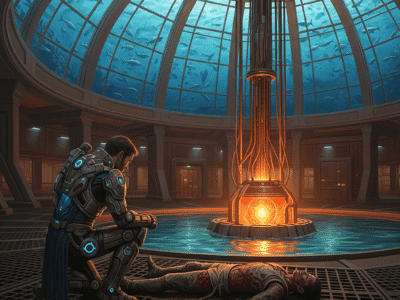
The Well of Lethe: 5
Korvus needs to see what’s happening in the reactor core. Sometimes, his job truly sucks. Read More …
Richard Parry: writer, liar, superhero

Korvus needs to see what’s happening in the reactor core. Sometimes, his job truly sucks. Read More …
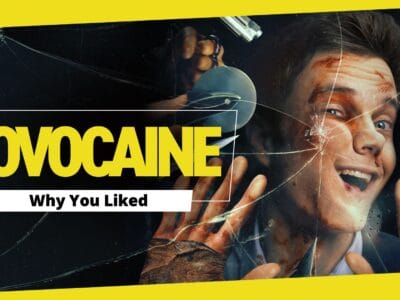
Get ready to feel everything in a movie where the hero feels nothing! I’m breaking down “Novocaine,” starring Jack Quaid, who delivers a pitch-perfect performance as Nate Caine – a guy literally immune to pain, yet who gives us all the feels. This action-comedy is a wild ride of dark humor and brutal, brilliant filmmaking, exploring what it means to find your inner hero. Plus, I’ll dive into how the directors cleverly make us accomplices in Nate’s “Pain Train™”—spoiler: we’re all twisted. Discover why this unique film works on so many levels. Read More …

Korvus descends the Well to meet the monster in the basement. Read More …
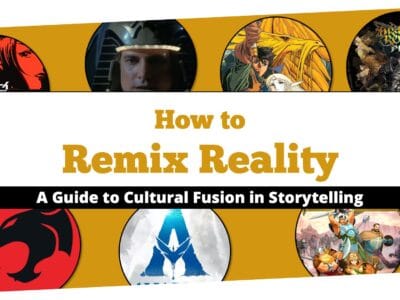
Ever wondered what Avatar: The Last Airbender has in common with 90s D&D arcade games? It’s how they raid the global spice rack to create fantasies we never knew we wanted. In my latest 4theWriters piece, I spelunk into the art of cultural fusion and give you my “Cultural Catalyst Framework”—a three-step guide for writers and GMs to build unique worlds for their novels or TTRPG campaigns. I even show how I used this exact system in my own books to justify werewolves that know kung fu. It’s a toolkit for remixing reality. Read More …
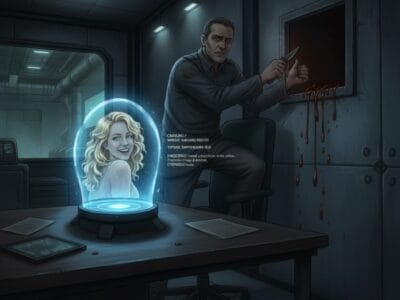
Now Korvus is heading deeper into the Well, what’s Warden Mercer so interested in? Read More …
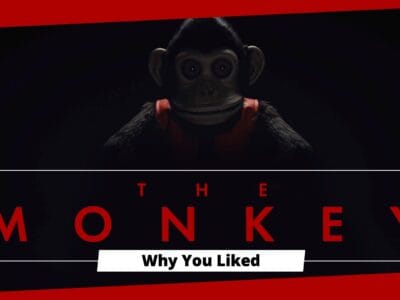
The Stephen King movie curse is real. But I’m here to tell you that The Monkey finally breaks it! In my latest review, I dissect how this film succeeds as a gory, hilarious dark comedy rather than a cheap jump-scare-fest. We’re talking a career-best dual performance from Theo James as feuding twins, some of the most inventive kills I’ve seen in years, and a surprisingly insightful take on our own inner demons. It’s a blood-soaked blast with a brain, and you can check out my full breakdown right here. Read More …
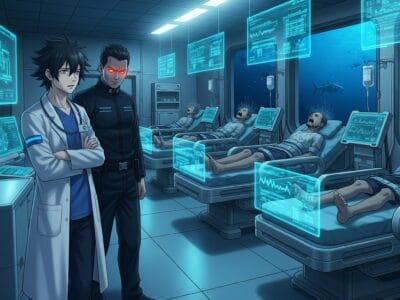
Delve further into Lethe SC90982 with Corrector Korvus as he meets the one man who might know what’s going on: Dr. Gideon Aris. Read More …

I was really hoping the 2024 reboot of The Crow would be a winner, but press F to pay respects. The film fundamentally misunderstands what makes a revenge story tick, spending geologically-relevant levels of time on backstory we already know, only to rob us of a satisfying payoff. From systemic pacing issues that kill the first hour to the frustrating misuse of great actors, this film fails all on its own. It had a perfect blueprint for success in the original graphic novel and instead chose to reinvent the wheel as a square. Read More …

Welcome to Lethe SC90982: a backwater prison colony choking on a high-pressure, acidic atmosphere. It’s a forgotten place for forgotten people, run by a jaded warden who’s just trying to keep the lid on a powder keg of terrorists and dissenters.
…And, of course, something else waits in the dark.
But before the killing in bulk starts, an enforcer from the monolithic Integrated Collective—a Corrector—arrives. And as the warden knows all too well from his own tragic past, when a Corrector shows up, well… that’s when the murder begins.
This is for fans of:
– Boots-on-the-ground military sci-fi like Aliens or Warhammer 40k.
– Intense, visceral action that doesn’t worry about blood on its shoes.
– Rich, lived-in worlds where the tech is impressive but the synth-cotton collars are still too damn tight.
Let’s roll. Read More …
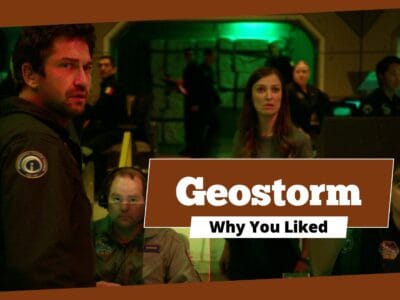
I fully admit that enjoying Geostorm should be a crime. Trapped on a plane, I braced myself for a silly disaster flick full of space lasers and a paper-thin villain—and it has all of that. But this review argues that the film’s ridiculous plot is just a cover for its real story: a surprisingly heartfelt drama about two brothers (played by Gerard Butler and Jim Sturgess) reforging their broken family bonds. It’s a movie about fixing relationships, not just saving the world, which is why I believe this B-movie has an A-grade heart. Read More …